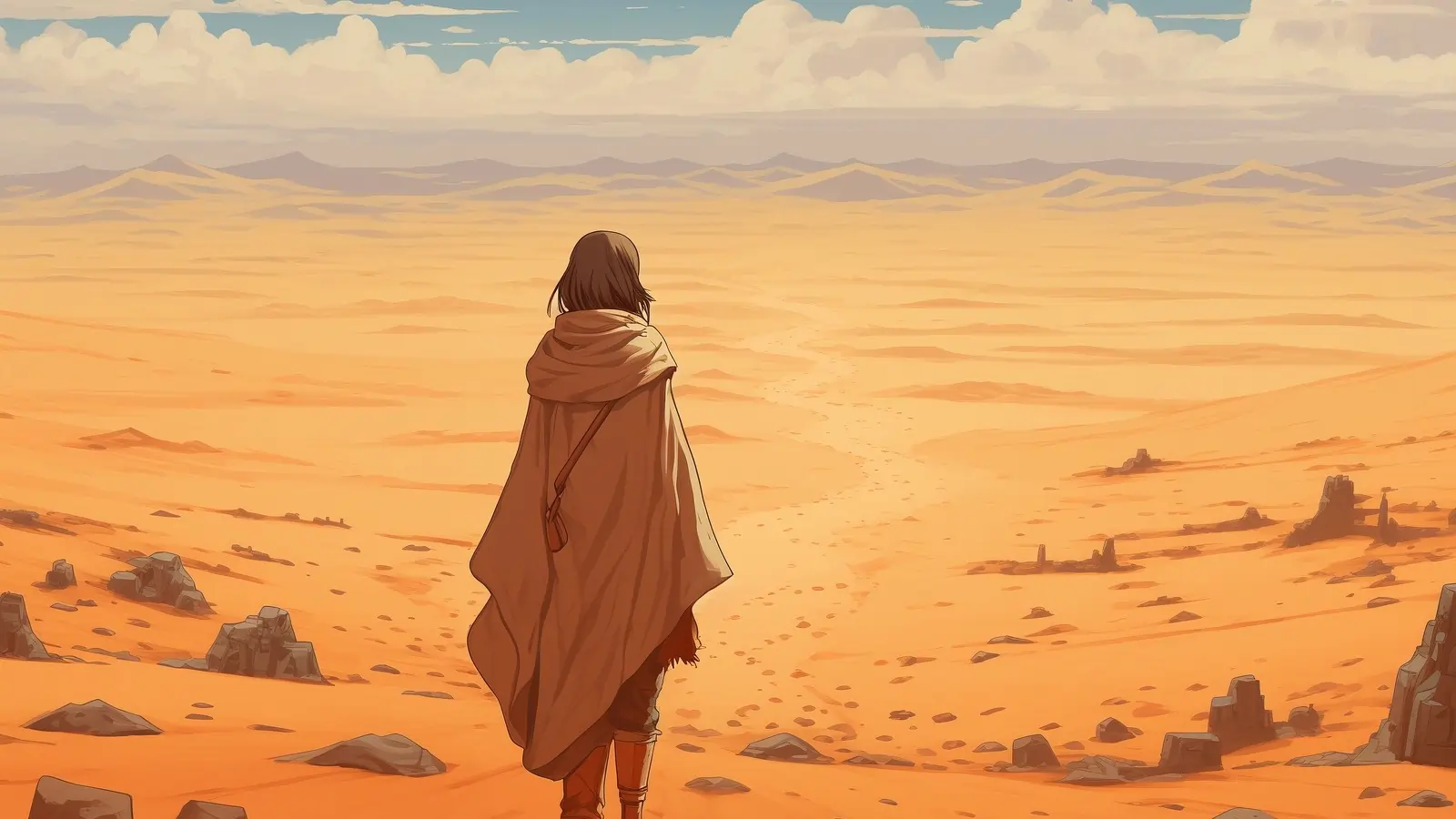The Alchemist
What if the answers to your biggest dreams were not in a distant land, but within you all along?
That’s the soul-stirring question Paulo Coelho poses in his international bestseller, The Alchemist. More than just a novel, this book has become a global phenomenon — one that transcends culture, age, and religion. It has inspired millions to pursue their dreams, listen to their hearts, and embrace the language of the universe.
Whether you’re a seeker, a dreamer, or someone at a crossroads in life, The Alchemist offers wisdom that resonates across time. In this blog, we dive deep into the story, the themes, and the timeless lessons that make The Alchemist much more than just a book — it’s a spiritual roadmap.
What Is The Alchemist About?
At its core, The Alchemist is a fable about following one’s dreams, often referred to in the book as a “Personal Legend.” Written by Brazilian author Paulo Coelho, the novel follows the journey of Santiago, a young Andalusian shepherd who dreams of a treasure hidden near the Egyptian pyramids.
But the treasure isn’t the only thing Santiago discovers.
Through deserts and oases, kings and alchemists, he learns the most valuable truths about life, love, fear, and purpose. The story weaves simple storytelling with profound philosophical messages, which is what has made it such a compelling and enduring classic since its first publication in 1988.
Summary of The Alchemist by Paulo Coelho
At first glance, The Alchemist may appear to be a simple tale—a young shepherd sets out to find treasure. But beneath that simplicity lies a deeply layered story about fate, personal transformation, and the courage it takes to follow one’s dreams.
1. Santiago’s Dream
The novel opens in the rolling hills of Andalusia, Spain, where we meet Santiago, a young shepherd boy who prefers life on the move to the confines of traditional education. He takes pride in knowing his sheep and observing the world firsthand. However, something stirs inside him—a recurring dream he’s had twice, in which a child tells him he’ll find treasure at the foot of the Egyptian pyramids.
Confused and curious, Santiago seeks out a gypsy fortune teller who interprets the dream literally: he must go to Egypt to find the treasure. Skeptical at first, Santiago encounters a second, more mysterious figure—Melchizedek, the self-proclaimed King of Salem. This old man introduces the concept of a “Personal Legend”, which he defines as a person’s true purpose or destiny. Melchizedek gives Santiago two magical stones—Urim and Thummim—to help him interpret omens and encourages him to follow his dream.
At this point, Santiago makes a life-altering decision: he sells his flock and sets off for Egypt.
2. Tangier: The First Fall and the Power of Choice
Arriving in Tangier, Santiago is immediately overwhelmed by a foreign culture and language. Worse, he’s robbed of all his money in a marketplace. Alone and broke in a strange land, he faces his first major test: should he give up and go home, or find a way forward?
Instead of retreating, Santiago decides to stay. He takes a job cleaning glassware for a crystal merchant, a man whose life has been defined by missed opportunities. Through months of hard work and small innovations—like offering tea in the shop to attract customers—Santiago helps grow the business. He also learns a deeper truth: people often resist change, even when it would improve their lives, because of fear and habit.
Though he has enough money to return home, Santiago now feels that his journey must continue.
3. Across the Desert: New Companions and Lessons
Santiago joins a caravan crossing the Sahara Desert to reach Egypt. On the journey, he meets an Englishman who is studying alchemy—the mystical art of transforming metals and achieving spiritual enlightenment. The Englishman is searching for a legendary alchemist who is said to possess the Philosopher’s Stone and the Elixir of Life.
From him, Santiago learns that alchemy is not just about turning lead into gold; it’s about spiritual transformation—the same process of refining the soul to reach its full potential. He realizes that while books offer knowledge, experience and intuition offer wisdom.
During the journey, Santiago also begins paying attention to omens—signs from the universe guiding him forward. This becomes a central theme of the book: learning to speak the Language of the World through intuition and signs.
4. The Oasis: Love, Danger, and the Strength to Continue
The caravan arrives at a large oasis, a neutral zone amid tribal wars in the desert. Here, Santiago meets Fatima, a young woman of the desert, and quickly falls in love. Their connection is deep and immediate, and for the first time, Santiago considers abandoning his journey to stay with her.
But Fatima, understanding the nature of true love, urges him to follow his Personal Legend. She tells him she will wait, because love does not hold someone back from their purpose—it strengthens them.
Soon after, Santiago interprets an omen about an impending tribal attack and warns the oasis leaders, which earns him respect and wealth. It is here that he meets The Alchemist, a wise and enigmatic man who agrees to guide him toward the pyramids.
5. The Alchemist’s Teachings: Turning Fear Into Gold
As they journey deeper into the desert, the Alchemist teaches Santiago the final and perhaps most difficult lessons:
That fear is the biggest barrier to fulfilling one’s dreams.
That when we pursue our Personal Legend with courage, the whole universe conspires to help us.
And that true alchemy is transforming the self, not just metal.
In one pivotal scene, the Alchemist asks Santiago to demonstrate his spiritual growth by turning himself into the wind to escape capture by a warring tribe. Santiago, though initially terrified, meditates on the interconnectedness of all things—the wind, the sun, the desert—and ultimately performs a miraculous act of transformation. This convinces the tribe to release him and affirms his place in the larger cosmic design.
6. The End Is the Beginning: The Treasure Revealed
After a long and perilous journey, Santiago finally arrives at the Egyptian pyramids. Overwhelmed with emotion, he kneels and weeps in gratitude. But just as he begins digging for treasure, a group of thieves ambushes and beats him.
One of the thieves mocks Santiago, saying that he once had a dream about treasure buried in a ruined church in Spain—ironically, the exact place where Santiago had his original dream.
Suddenly, Santiago understands the final piece of the puzzle: the treasure was not in Egypt. It was back where he started—under the sycamore tree at the ruined church where he once slept.
7. Full Circle: The True Treasure
The novel ends with Santiago returning to Andalusia, where he finds a chest of gold and jewels buried beneath the tree. The treasure was real all along. But more importantly, he himself has changed. He is no longer just a shepherd. He is someone who has journeyed through the unknown, faced failure and fear, discovered love, and learned the soul of the world.
In the final lines, Santiago looks up at the sky and whispers, “I’m coming, Fatima,” ready to return to the oasis—his heart and destiny fulfilled.
Symbolic Takeaways from the Plot
The Treasure: Represents not just material wealth, but self-discovery, inner peace, and purpose.
The Desert: A metaphor for life’s harsh challenges and spiritual purification.
The Alchemist: Symbolizes the mentor or inner guide we all seek when walking an uncertain path.
Fatima: Represents love that encourages growth rather than possession.
Omens: Signify the importance of being present and attuned to the signs around us.
Life Lessons in The Alchemist
1. Follow Your Personal Legend
Your Personal Legend is your life’s true calling. Coelho urges readers to identify what their heart longs for and to chase it, no matter how difficult the journey.
2. Listen to Your Heart
One of the most quoted lines in the book is:
“Remember that wherever your heart is, there you will find your treasure.”
Our hearts often know our purpose long before our minds catch up.
3. The Universe Conspires to Help You
When you pursue your dreams with sincerity, the universe aligns itself to support you. This idea resonates deeply with those who believe in manifestation and spiritual alignment.
4. Fear Is the Real Enemy
Fear of failure, rejection, and the unknown is the greatest barrier to achieving our goals. Santiago learns that once we conquer fear, we unlock endless possibilities.
5. The Journey Matters More Than the Destination
Though the treasure was in Spain, Santiago’s journey was essential. Every step transformed him, proving that growth often lies in the path, not the prize.
Paulo Coelho’s Personal Touch: A Glimpse Behind the Pages
Coelho’s own life mirrors the philosophy in The Alchemist. Before becoming a global literary figure, he faced immense opposition—his parents committed him to a mental institution for wanting to be a writer. He worked as a songwriter, actor, and even experienced a spiritual awakening on the Camino de Santiago, a pilgrimage in Spain.
He wrote The Alchemist in just two weeks, claiming that the story was already “written in his soul.”
His belief in the power of dreams, spiritual intuition, and perseverance infuses every line of the book, making it feel personal, almost as if he’s talking directly to the reader.
Why The Alchemist Still Resonates Today
In an age of constant distraction, anxiety, and societal pressure, The Alchemist offers a gentle but firm reminder: you are the author of your own destiny.
The language is simple, almost parable-like, making it accessible to readers of all ages. Yet, its themes are profound enough to stay with you for a lifetime. It doesn’t offer a formula but rather a framework to live intentionally, purposefully, and soulfully.
Whether you’re a college student wondering what career to pursue or a 40-year-old feeling stuck in a corporate loop, The Alchemist whispers: “It’s never too late to begin.”
Final Thoughts: The Treasure Is You
The Alchemist is not about a boy who finds gold in the sands of Egypt. It’s about a person who discovers that true wealth lies in knowing oneself, trusting one’s path, and daring to dream.
Its universal message continues to echo across continents and generations: Your heart already knows the way. All you have to do is listen.
Have you read The Alchemist? What did it teach you about your own journey? Share your thoughts in the comments below. If this post inspired you, consider subscribing to our newsletter for more deep dives into life-changing books.
Still haven’t read it? Grab your copy of The Alchemist and begin your own journey of transformation today.




